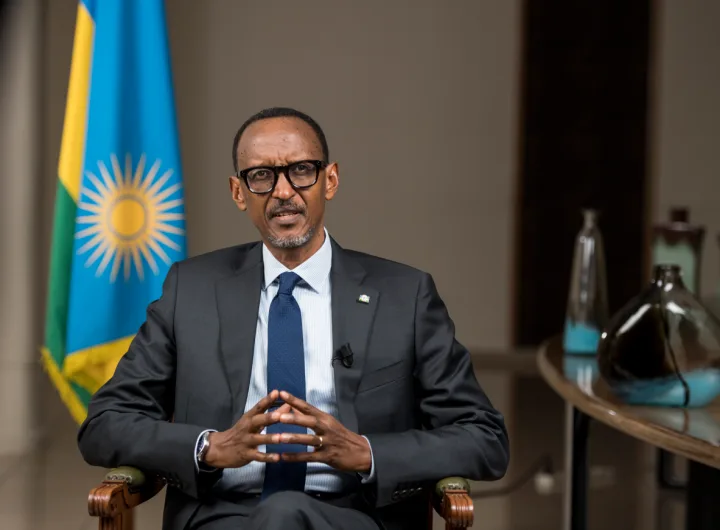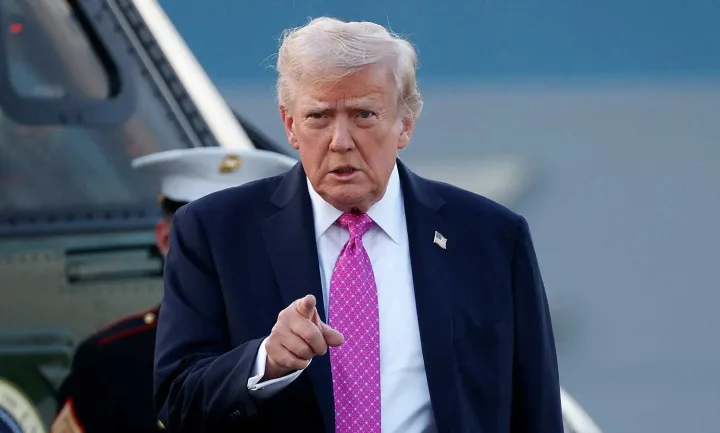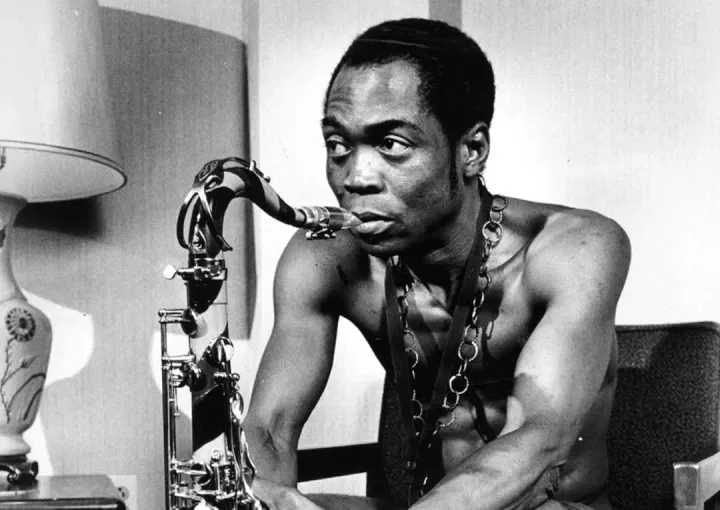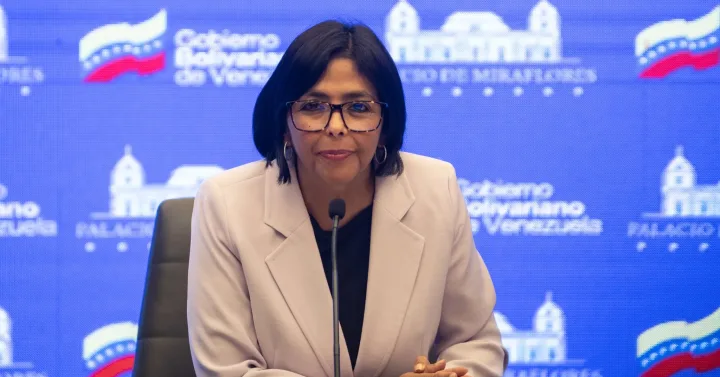
Trump has directed officials to investigate the killings in Nigeria/Getty
Trump did not rule out the possibility of military action in Nigeria.
ABUJA/WASHINGTON — The United States has officially redesignated Nigeria as a “Country of Particular Concern” (CPC) following allegations of severe violations of religious freedom, marking a significant shift in bilateral relations between the two nations.
President Donald Trump announced the designation on October 31, 2025, via social media, citing what he described as an “existential threat” facing Christians in Nigeria.
The U.S. State Department formally updated Nigeria’s status on Monday, November 3.
“Christianity is facing an existential threat in Nigeria. Thousands of Christians are being killed. Radical Islamists are responsible for this mass slaughter,” Trump stated in his announcement.
“I am hereby making Nigeria a ‘COUNTRY OF PARTICULAR CONCERN.'”
The CPC designation, established under the U.S. International Religious Freedom Act of 1998, is applied to nations that the U.S. government determines are engaged in or tolerate “particularly severe violations of religious freedom.”
Related: US Air Force Denies Early Retirement Benefits To Transgender Personnel
The label is largely symbolic but opens the door for potential sanctions, including restrictions on non-humanitarian aid.
Congressional Investigation Launched
Trump has directed U.S. Representative Riley Moore of West Virginia and House Appropriations Committee Chairman Tom Cole of Oklahoma to lead an investigation into the situation.
Moore, who has been advocating for the designation since April 2025, claims that more than 7,000 Christians have been killed in Nigeria in 2025 alone, averaging 35 deaths per day.
According to Open Doors, an international watchdog organization, nearly 70% of Christians killed for their faith worldwide in the past year died in Nigeria.
The group attributes most violence to extremist groups including Boko Haram, Islamic State West Africa Province (ISWAP), and armed Fulani herders.
Presidency Responds, Denies Religious Persecution
President Bola Ahmed Tinubu swiftly rejected the characterization of Nigeria as religiously intolerant, stating that such claims “do not reflect our national reality.”
“Religious freedom and tolerance have been a core tenet of our collective identity and shall always remain so,” Tinubu wrote on social media.
“Nigeria opposes religious persecution and does not encourage it.”
The Nigerian government issued an official statement reaffirming its commitment to tackling violent extremism and protecting all citizens regardless of their religious affiliation.
Massad Boulos, Senior Adviser to President Trump on Arab and African Affairs, had previously acknowledged that terrorist groups in Nigeria have killed people of all religious backgrounds.
“Terrorism has no colour, no religion, no tribe. People of all religions are dying from terrorist acts,” Boulos stated.
“We even know that Boko Haram and ISIS are killing more Muslims than Christians in Nigeria.”
Context and Complexity
Nigeria’s security challenges stem from multiple sources. The country has faced over a decade of violence from Boko Haram insurgency in the northeast, banditry in the northwest, and conflicts between predominantly Christian farmers and predominantly Muslim herders over land and water resources in the Middle Belt region.
Security analysts and government officials have long maintained that these conflicts, while sometimes involving religious communities, are primarily driven by competition over resources, ethnic tensions, and the activities of criminal gangs rather than religious persecution per se.
The U.S. had previously designated Nigeria as a CPC in 2020 under Trump’s first administration. However, President Joe Biden’s Secretary of State, Antony Blinken, removed the designation in November 2021, determining that Nigeria did not meet the criteria for “systematic, ongoing, and egregious” violations of religious freedom.
The U.S. Commission on International Religious Freedom strongly criticized that decision at the time.
Potential Implications
Following Trump’s announcement, he posted a more forceful message on November 1, threatening to cut all U.S. aid to Nigeria and warning of potential military action if the Nigerian government “continues to allow the killing of Christians.”
He stated he had instructed the Department of Defense to “prepare for possible action.”
The designation could lead to various consequences, including:
- Potential sanctions on Nigerian officials
- Restrictions on arms sales
- Suspension of non-humanitarian assistance
- Increased diplomatic pressure on the Tinubu administration
However, the actual implementation of such measures would require additional steps beyond the designation itself.
Mixed Reactions
The move has generated varied responses. U.S. Senator Ted Cruz of Texas, who introduced legislation in August calling for sanctions against Nigeria over alleged religious freedom violations, praised the decision as “a critical step in holding accountable and changing the behavior of Nigerian officials.”
International advocacy organizations, including ADF International and the International Christian Concern, welcomed the designation, with some calling it an important step toward accountability.
Critics, however, warn that the designation oversimplifies Nigeria’s complex security situation and could damage diplomatic relations between the two countries.
Some observers also note that Trump bypassed the traditional process for CPC designations, which typically involves recommendations from the U.S. Commission on International Religious Freedom and State Department specialists.
What Happens Next?
President Tinubu’s government faces mounting pressure to demonstrate concrete actions in addressing security challenges across the country.
The administration has emphasized its commitment to protecting all citizens and combating terrorism, but will likely need to engage more actively with U.S. officials to address concerns.
The congressional investigation led by Representatives Moore and Cole is expected to examine the extent of religious persecution claims and recommend specific policy actions.
For Nigeria, the designation represents both a diplomatic challenge and an opportunity to engage international partners in addressing the nation’s security crises.
How the government navigates this situation in the coming weeks could have lasting implications for U.S.-Nigeria relations.
The U.S. Commission on International Religious Freedom is required to conduct annual reviews of religious freedom worldwide, meaning Nigeria’s status will be reassessed in future reporting periods.

 Kagame Condemns International “Threats” Directed At Rwanda As US Sanction Looms
Kagame Condemns International “Threats” Directed At Rwanda As US Sanction Looms  Bandits Kill Nearly 200 In Kwara And Katsina State
Bandits Kill Nearly 200 In Kwara And Katsina State ![Saif al-Islam Gaddafi after being captured in Zintan, Libya, on November 19, 2011 [Ammar El-Darwish/AP Photo]](https://www.lionscrib.com/wp-content/uploads/2026/02/image-4-720x513.webp) Muammar Gaddafi’s Son Seif al-Islam Gaddafi Killed
Muammar Gaddafi’s Son Seif al-Islam Gaddafi Killed  US Set To Deport 79 Nigerians
US Set To Deport 79 Nigerians  Fela Kuti Becomes First African Artist To Receive Posthumous Grammy Lifetime Achievement Award
Fela Kuti Becomes First African Artist To Receive Posthumous Grammy Lifetime Achievement Award  Venezuela Rejects US Interference, Says Interim Leader Rodríguez
Venezuela Rejects US Interference, Says Interim Leader Rodríguez  Actor Omotola Jalade Ekeinde Says She Won’t Dance To Promote A Movie
Actor Omotola Jalade Ekeinde Says She Won’t Dance To Promote A Movie